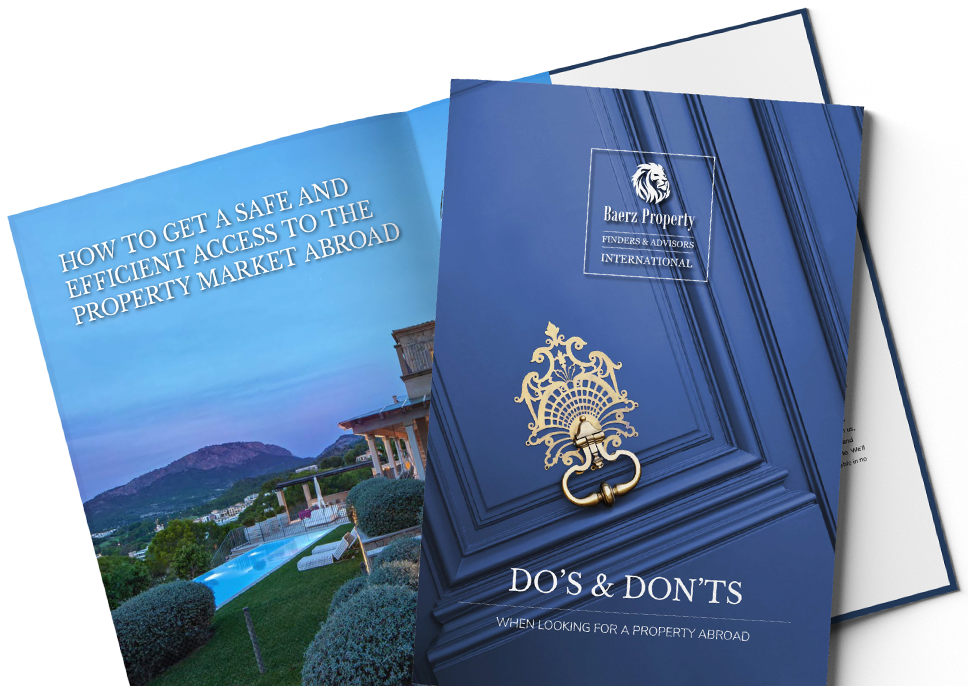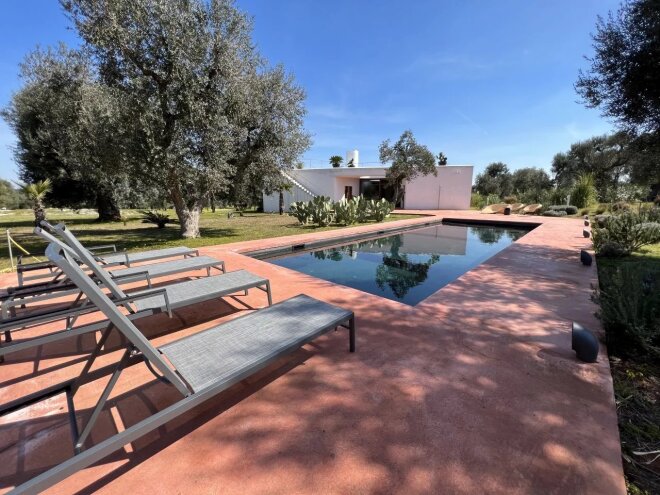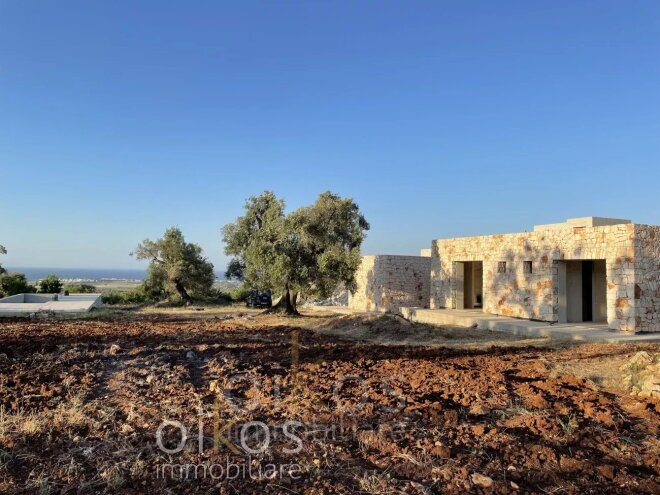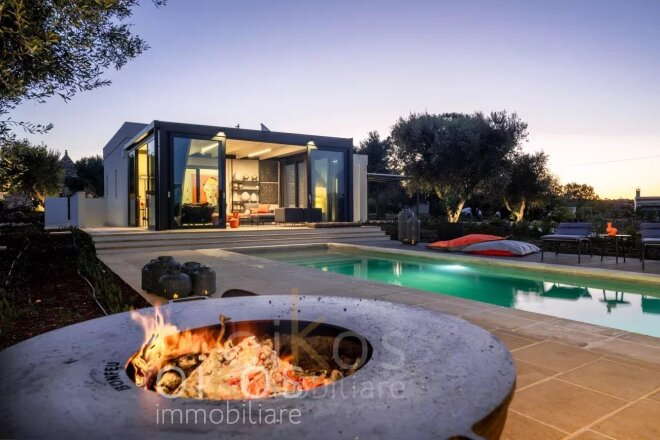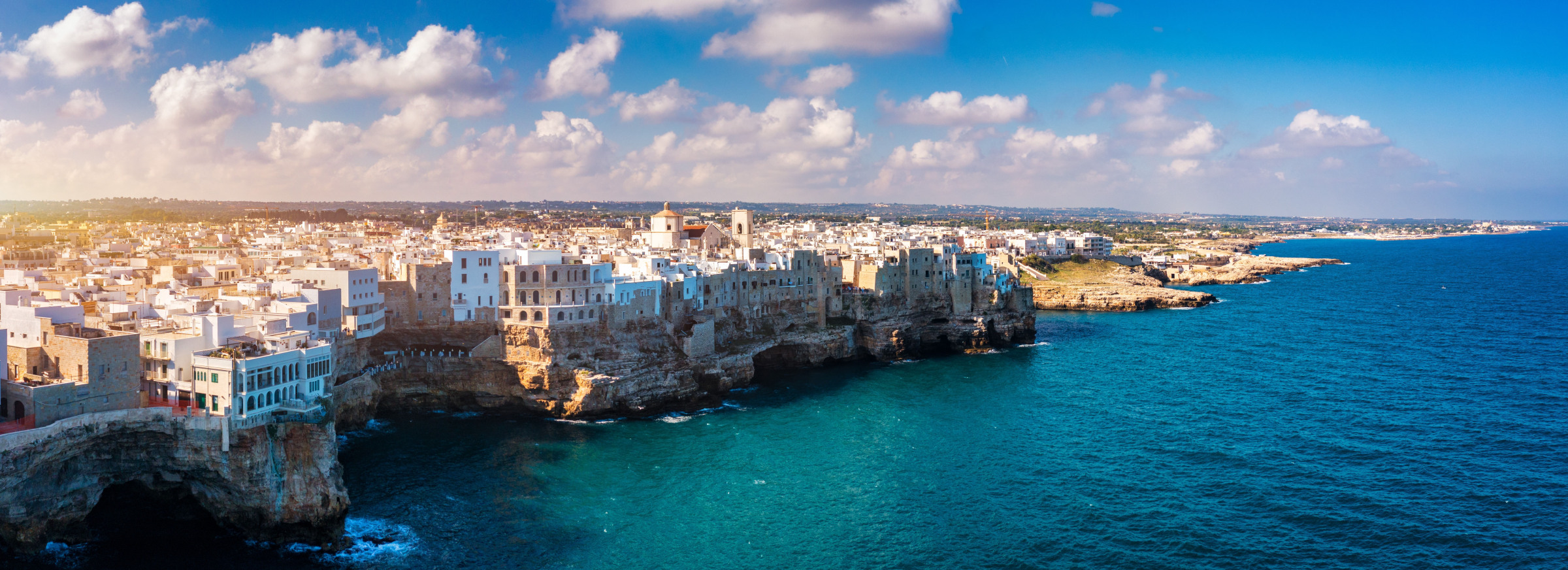
De afgelopen vijf jaar groeit de interesse van zowel Italiaanse als buitenlandse investeerders, met name uit Noord-Europa. Het aanbod blijft beperkt, wat de prijsstabiliteit versterkt en bijdraagt aan focus op kwaliteit. Transacties kunnen meer tijd kosten, zeker bij karakteristieke panden die maatwerk en zorgvuldige marketing vragen.
Populaire gebieden zijn het historische centrum, waar barokke palazzi grandeur bieden op loopafstand van winkels en trattoria’s. In de omliggende heuvels liggen grote landgoederen tussen de wijngaarden, ideaal voor privacy, eigen landbouw of een boetiekhotel. Richting de Ionische kust zijn woningen populair vanwege hun potentie als privéverblijf of exclusieve vakantiewoning.
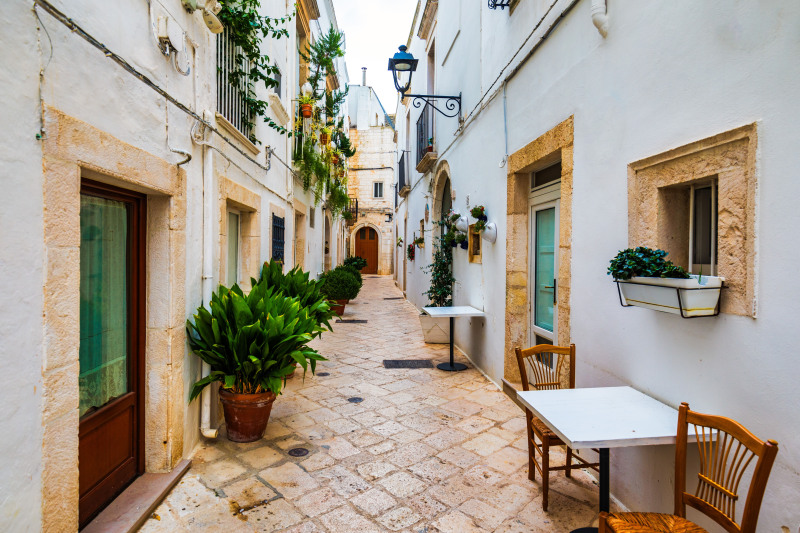
De markt draait om erfgoedrestauratie en hoogwaardige nieuwbouw, met veel vraag naar masseria’s, trulli en afgelegen villa’s. De aantrekkingskracht zit in het bezitten van authentiek Apulisch erfgoed, vaak omringd door oude olijfbomen, wijngaarden en kalkstenen muurtjes. Buitenlandse kopers (met name uit Duitsland, Frankrijk en het VK) waarderen het ongerepte landschap en de nabijheid van zowel platteland als zee. Aankoop verloopt meestal transparant via een notaris. Bij contante betaling kan het proces versnellen; financiering is mogelijk. Elke aankoop vereist degelijke due diligence, vooral bij renovatiepanden. Lokale expertise is cruciaal voor kadastrale en bouwkundige checks vanwege de specifieke plattelandsregels. Verkopers kunnen rekenen op een publiek dat oog heeft voor authenticiteit en leefkwaliteit, niet op korte termijn rendement uit is.
De aankoop wordt gekenmerkt door degelijke bescherming voor koper en verkoper. Stappen zijn het uitbrengen van een bod, koopovereenkomst, due diligence en notariële overdracht. Niet-ingezetenen kunnen zonder beperkingen kopen; juridisch advies wordt aanbevolen, zeker bij agrarisch vastgoed of functiewijziging. Erfgoedregels kunnen renovatievergunningen beïnvloeden in oude stadsdelen.
Luxe huurwoningen worden vooral seizoensgebonden aangeboden met veel vraag in het voor- en hoogseizoen. Gerenoveerde landhuizen en villa’s met zwembad zijn favoriet. Wie rendement zoekt, dient de juiste vergunningen en naleving van lokale regelgeving te waarborgen. Concierge-services, privékoks en wijnbelevingen zijn populair bij gasten.
Manduria’s luxe segment vereist specialistische kennis. Adviseurs bieden toegang tot exclusieve off-market kansen, onderhandelen met nuance en begeleiden internationaal ingewikkelde aankopen. Hun expertise omtrent juridische kaders, regionale regelgeving en restauratie zorgt voor vlekkeloze transacties voor een veeleisend publiek.
Manduria trekt steeds meer ondernemers in kleinschalige wijnbouw, persoonlijke gastvrijheid en digital nomads aan. Luxe eco-lodges, wijntours en lokale culinaire initiatieven floreren. Kopers transformeren geregeld historische woningen tot resorts of evenementenlocaties, in lijn met de regionale toeristische aantrekkingskracht. Digitale infrastructuur is goed en hybride werken eenvoudig. Duurzame landbouw en agritoerisme bieden interessante investeringsopties, met toenemende vraag naar authentieke beleving onder internationale gasten.
De Italiaanse juridische structuur en gevestigde eigendomsrechten zorgen voor stabiliteit. Lokale overheden investeren in erfgoedbehoud, infrastructuur en toerisme. Nabijheid van Lecce en Brindisi waarborgt goede bereikbaarheid. De reputatie op het gebied van kwaliteitswijn (Primitivo) en olijfolie versterkt economische veerkracht en spreekt wie op zoek is naar lifestyle en toekomstwaarde aan.
Manduria biedt een hoge levensstandaard met lagere lasten dan Noord-Italiaanse of internationale steden. Kosten voor nutsvoorzieningen zijn gematigd, personeel als tuinlieden of huishoudelijke hulp werkt tegen concurrerende lokale tarieven. Dineren varieert van familietrattoria’s tot verfijnde streekrestaurants. Belastingen en onderhoudskosten zijn voorspelbaar; kosten voor bijzondere diensten zoals renovatie of wijngaardbeheer hangen af van locatie en omvang. Lokale producten en topwijnen zijn uitstekend geprijsd in vergelijking met andere mediterrane regio’s.
Het leven wordt er bepaald door wijngaarden, cultuur en ingetogen luxe. Bewoners en bezoekers genieten van wijntradities, culinaire festivals en ambachtelijke markten. Interieurs zijn vaak barok geïnspireerd, het buitenleven draait om beschaduwde patio’s en uitzicht over de olijfgaarden. Privéproeverijen, jachtcharters en toegang tot ongerepte stranden maken het leven ongedwongen en stijlvol. Het lokale jaarprogramma kent culturele evenementen die garant staan voor authentiek Italiaans leven zonder massatoerisme.
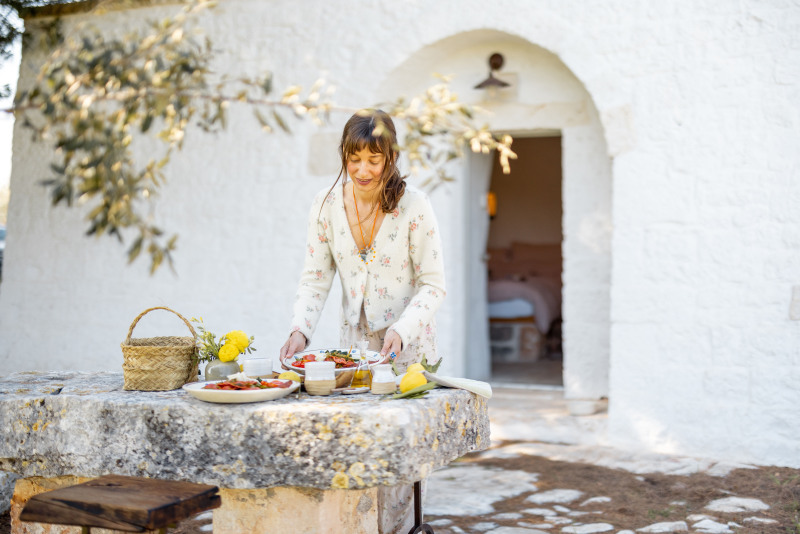

Manduria heeft een mediterraan klimaat met milde winters en lange, zonnige zomers. Gedurende de warmste maanden nodigt het klimaat uit tot buitenleven, dineren in de open lucht en zwemmen tot diep in het najaar. De wind vanaf de Ionische kust zorgt voor verkoeling. De stabiele weerspatronen maken jaarrond bewonen, wijnbouw en recreatie aantrekkelijk.
Toegang tot topsegment woningen in Manduria verloopt discreet. Het aanbod varieert van historische landhuizen en moderne villa’s tot wijndomeinen. De meeste panden zijn alleen op uitnodiging te bezichtigen, voor een persoonlijke en efficiënte koopervaring.
Manduria biedt een select aanbod van kleinschalige restauraties en nieuw gebouwde villa’s, vaak met klassieke masseria-stijl gecombineerd met hedendaags comfort. Recente projecten beschikken over privézwembaden, beschutte tuinen en duurzame materialen in harmonie met de lokale architectuur.
Elk jaar zien wij internationale kopers in dezelfde valkuilen stappen. Ze besteden eindeloos veel tijd aan het najagen van dubbele of allang verkochte woningaanbiedingen op internet. Ook worden ze heimelijk door elke verkoopmakelaar bij iedere informatie-aanvraag, zonder hun instemming, geclaimd als “geregistreerde cliënt”. En te vaak vertrouwen ze op verkoopmakelaars die beweren zowel de verkoper als de koper onpartijdig te vertegenwoordigen; een situatie die zelden in het voordeel van de koper uitpakt.
Dit zijn situaties die eenvoudig te voorkomen zijn. In deze korte video laten wij u de drie meest voorkomende valkuilen zien die een droomzoektocht kunnen veranderen in een nachtmerrie. Ook tonen we u hoe u internationale luxe vastgoedmarkten het best kunt betreden.
